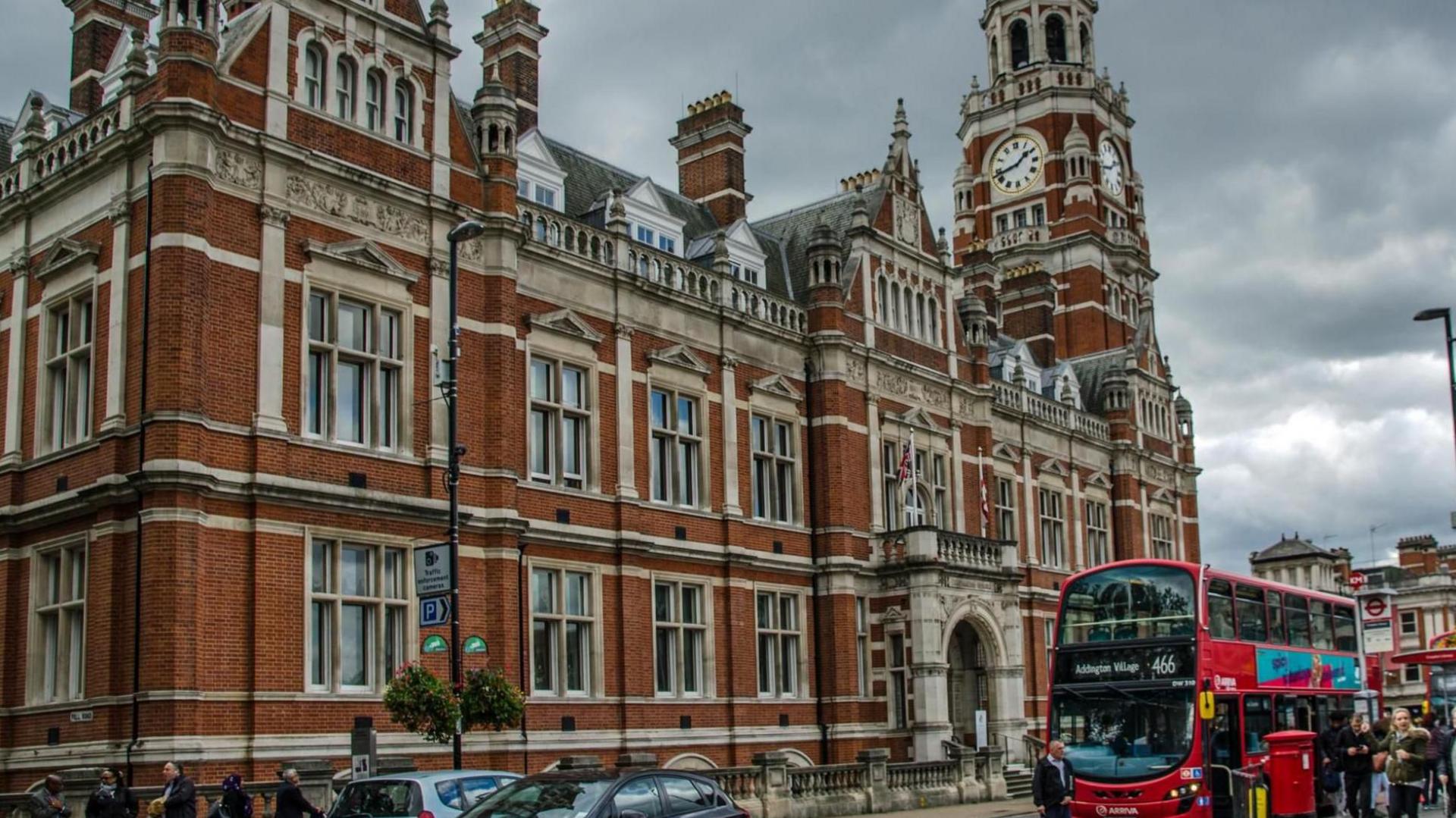Mayor criticises decision to send in commissioners

Directly elected Conservative mayor Jason Perry says Croydon is getting different treatment to Labour-run councils
- Published
Croydon's directly elected mayor has told the BBC that he thinks the decision by the government to send commissioners into the debt-ridden council may have been politically motivated, ahead of local elections next spring.
Conservative Jason Perry said Croydon had been on a "journey of improvement" after the borough effectively went bankrupt three times, adding that what it really needed was a "partial bailout".
His comments have been disputed by local Labour politicians, who said he should focus on getting a deal with government.
The government said the commissioners would provide Croydon with a "short and sharp reset" to "shift the dial on the council's recovery".
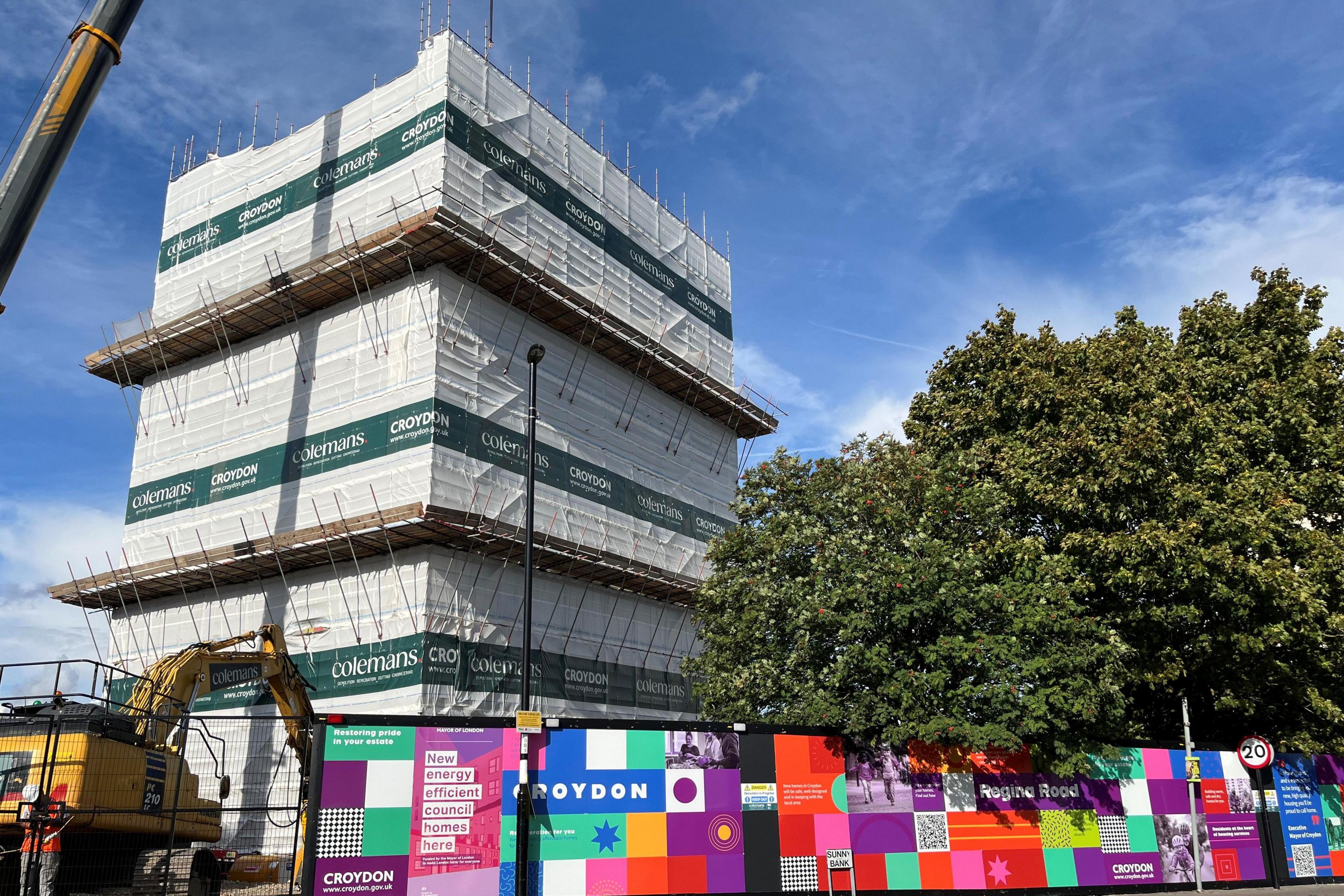
Hundreds of new council homes are to be built on the Regina Road estate in South Norwood where old mouldy flats are being demolished
At the Regina Road estate in South Norwood, the council is trying to rebuild more than just homes, but also its reputation. Kitted out in a hard hat and hi-viz jacket, Perry explained: "When I came into office we had people living here in absolutely terrible conditions with damp and mould and it was famously across all our TV screens.
"We're now in the process of demolishing the first block and we're delivering 225 new council homes. I think it really shows the transformation of Croydon."
The social housing regulator's recent decision to lift a regulatory notice on Croydon, as well as the council's "good" rating for children's services from Ofsted are signs, according to Perry, that the borough is doing better and he has called the government decision to bring in commissioners "unfair".
"There seems to be different treatment for Labour and Conservative-controlled councils," he told BBC London. "[Labour-controlled] Warrington Council is in a worse position than Croydon right now, but they got envoys and here in Croydon we got commissioners despite the journey of improvement we've been on."
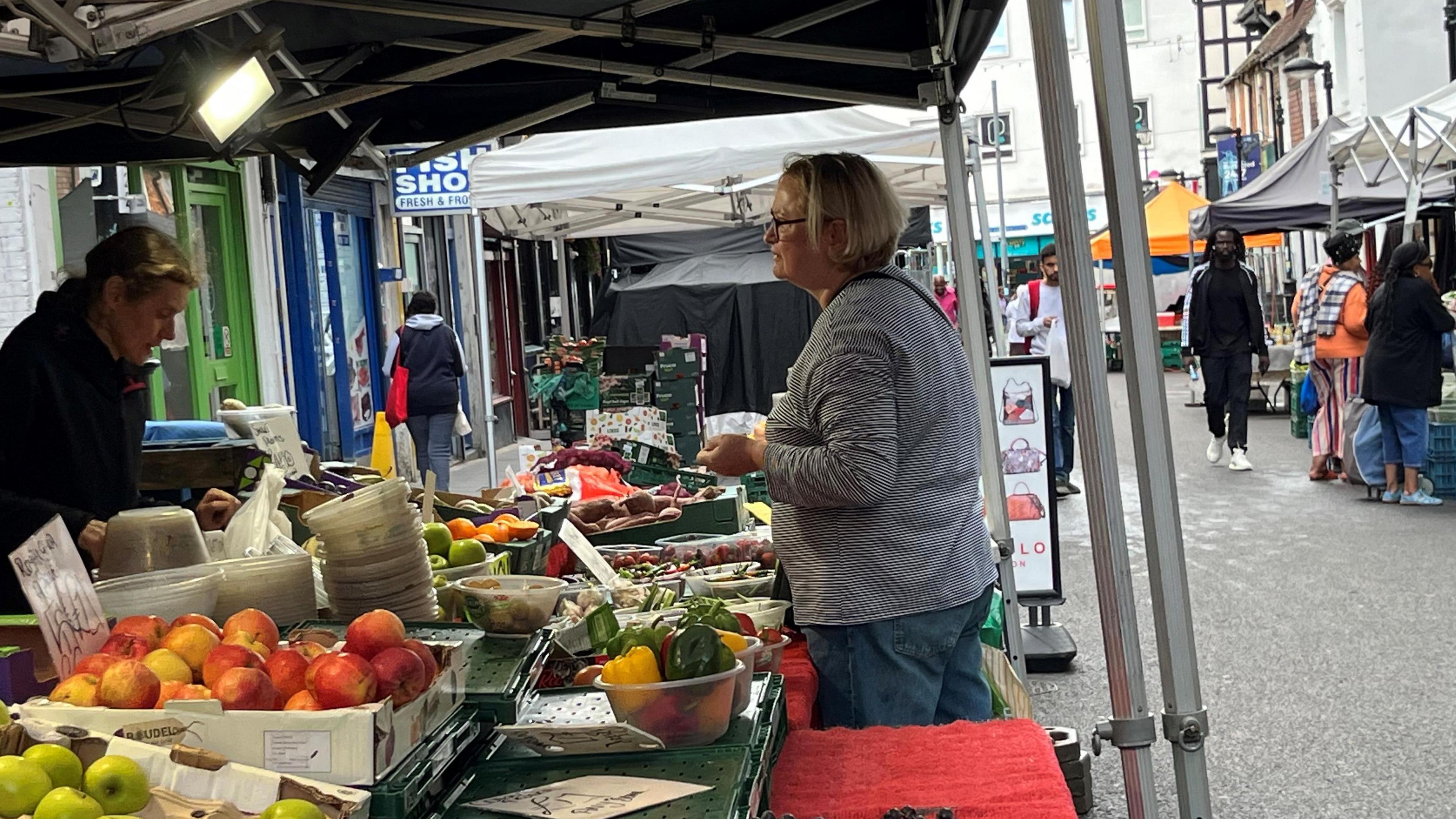
Croydon's residents have been feeling the pain in a borough that has been struggling financially for years
Commissioners, like the ones who have gone into Croydon, have expertise in local government and are given statutory decision-making powers enabling them to override council decisions. While ministerial envoys, who have been sent into other councils including Tower Hamlets and Warrington, have an advisory role and are seen as being part of a more collaborative approach.
The government decision to send commissioners into Croydon followed a report from the Improvement and Assurance Panel, external, which has been tasked with providing advice to Croydon since 2020, that warned of "rapidly deepening difficulties" at the London borough.
Perry said he had been working constructively with the commissioners since they arrived, but with the next set of local council elections in London fast approaching, he thought the timing of the government's decision was suspect.
"There could be a political motivation with regards to local elections next year... I think the reality is Croydon was bankrupted by the previous Labour council and many local residents still remember that," he explained.
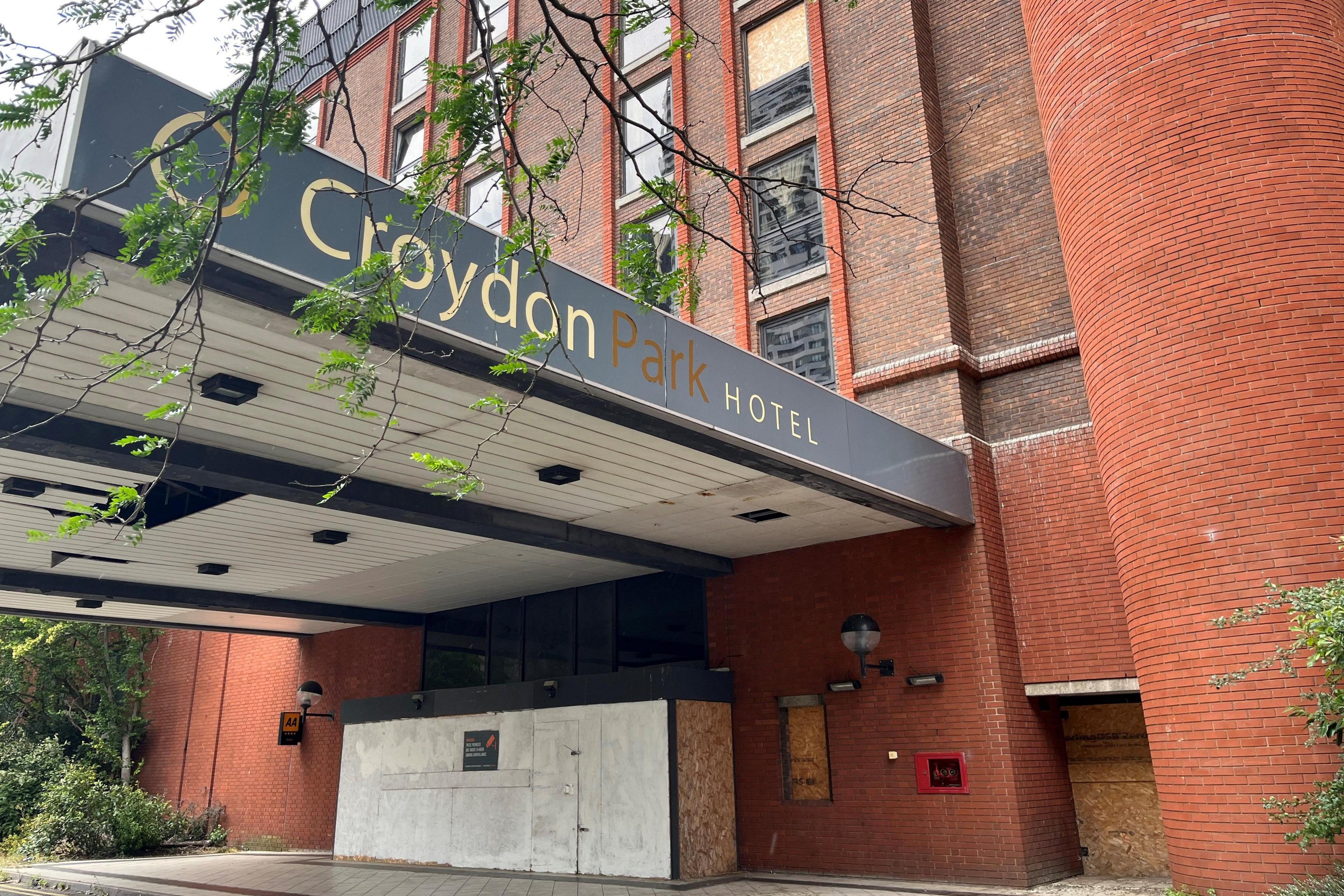
The former Croydon Park Hotel near East Croydon station was one of the investments the council made that it ended up having to sell off at a loss
Poor investment choices, including setting up a housing company and buying a shopping centre and a hotel – which the council has since had to sell off – contributed to Croydon becoming the first London borough in 20 years to effectively go bankrupt when it issued a section 114 notice in November 2020, the first of three.
Amid discontent at the financial problems that the then-Labour-run council had got into, the Conservatives won the newly created elected mayoral post in local elections in May 2022, with a promise to improve things.
However, Croydon ended up effectively going bust a third time six months later and its finances remain in a precarious position. It currently spends £71m a year just servicing the interest payments on its debt, which now stands at £1.4bn, and the borough has repeatedly had to ask the government for Exceptional Financial Support, which is permission to borrow more.
Labour's mayoral candidate for Croydon, local councillor Rowenna Davis, said instead of "slashing" the chances of getting a financial deal that "Croydon desperately needs" by "insulting" the government, the Conservative mayor should "take responsibility" because "after three years in office council tax is up, assets have been sold and libraries and youth clubs are gone".

Local resident Yogendra Patel is not convinced that government commissioners with fix the "mess" in Croydon
Croydon's residents have felt the pain of living in a borough that has been struggling financially. Council tax went up by a whopping 15% two years ago, several community buildings have been sold off and there have been reductions in local services.
Walking past the fruit and veg stalls at Surrey Street Market, I met local resident Yogendra Patel who told me: "Croydon's been a mess for a long time and it's no secret. They're sending commissioners in, but what's it really going to do? We've seen it all before."
Gosia, who is a cleaner at the local hospital, told me she was unhappy that unelected commissioners would be able to make decisions in Croydon.
"I think that should not be happening," she said. "We vote for people. We choose them because of what they're thinking, not for someone to tell them what they should do and what they should think."
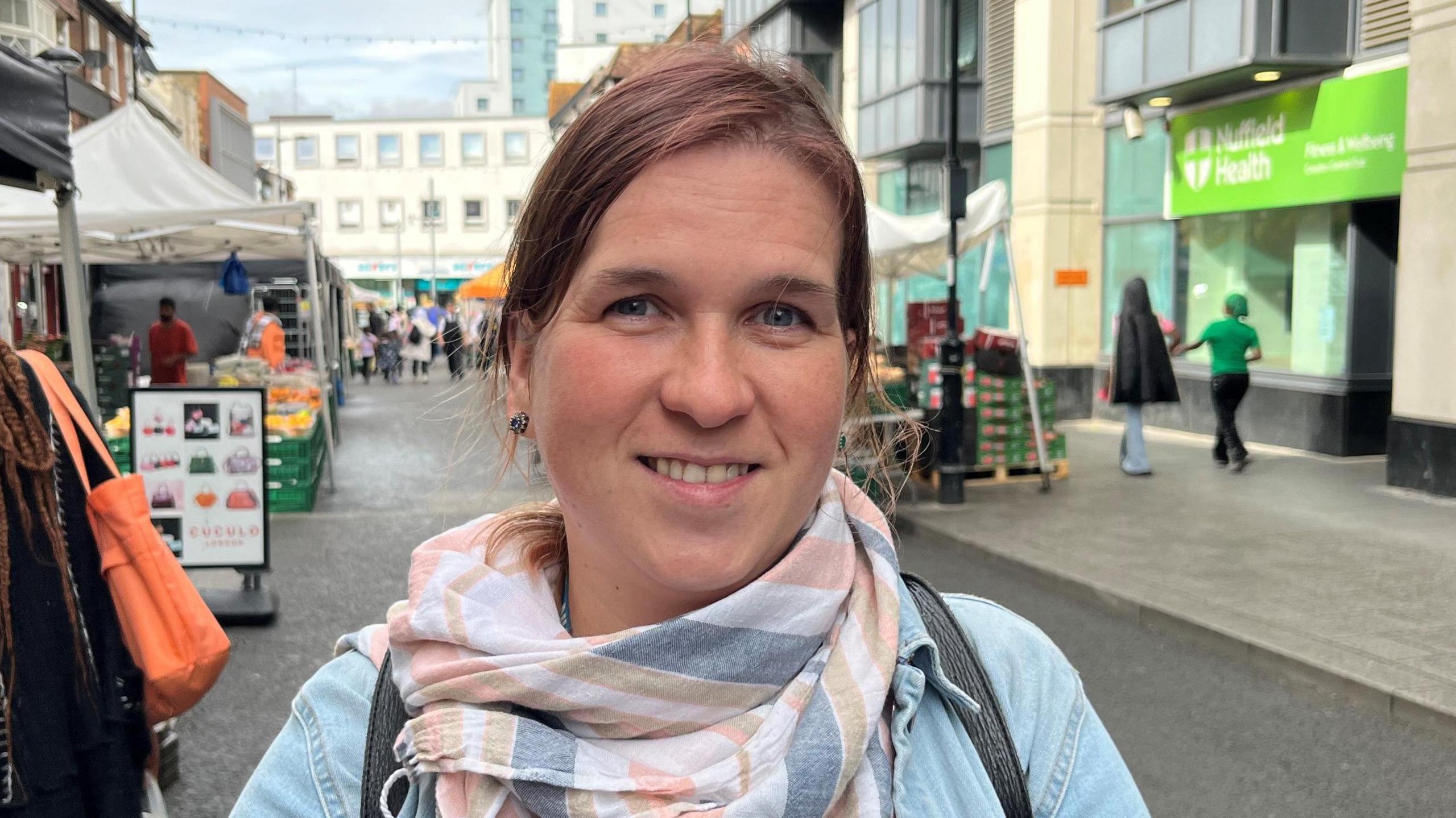
Local resident Gosia does not like the idea of unelected government commissioners having the power to tell elected politicians in Croydon what to do
Local government finance expert Rob Whiteman, who is the former chief executive of the Chartered Institute of Public Finance and Accountancy, said the only real solution for Croydon would be a government bailout.
"The problem for Croydon is it is sort of mathematically impossible for them to sort themselves out," he told me.
"The level of debt is so great that actually you're never going to be able to pay it off so I think commissioners are an interim step to the government recognising that the authority can't be sorted out and that ultimately they're going to have to pay the debt off." But, he added: "The government won't say that."
The Ministry of Housing, Communities and Local Government said the commissioners had been appointed because the "financial challenges at Croydon" were "substantial and required immediate action".
The commissioners are due to be in place until July 2027, with their first report expected towards the end of this year.
Listen to the best of BBC Radio London on Sounds and follow BBC London on Facebook, external, X, external and Instagram, external. Send your story ideas to hello.bbclondon@bbc.co.uk, external
Related topics
- Published17 July
